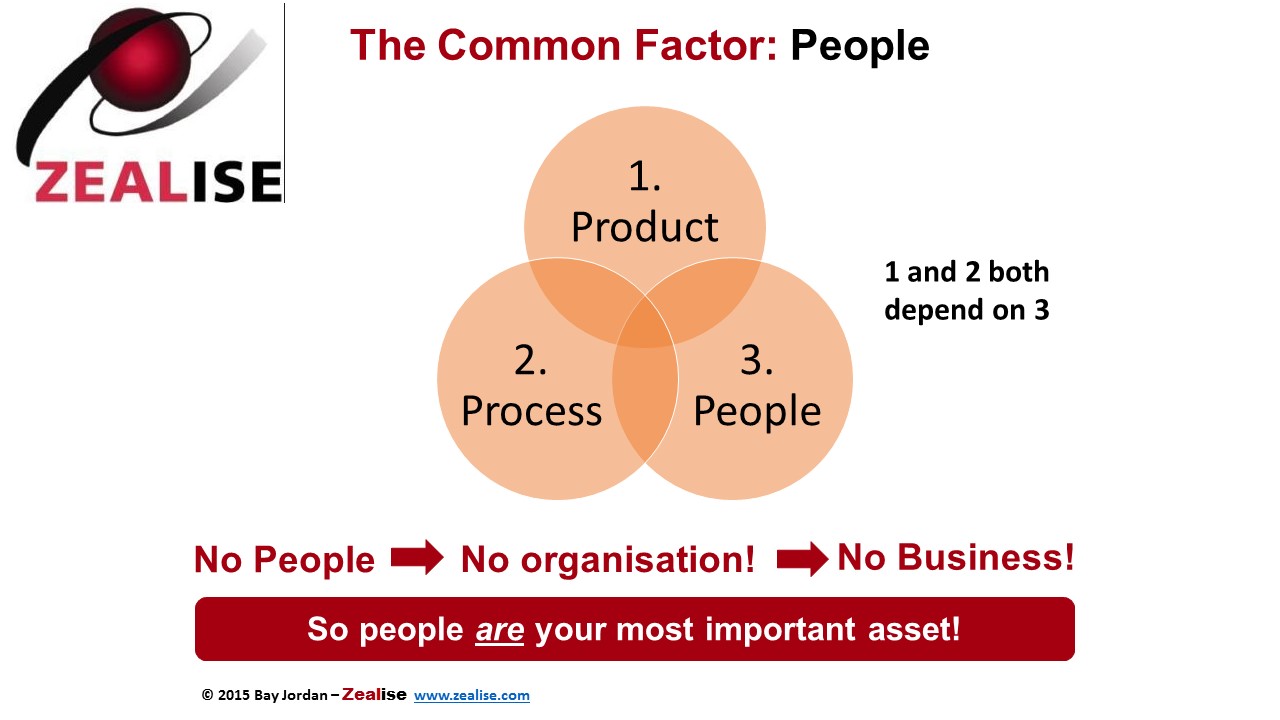They say you should never answer a question with a question. Yet, sometimes, there is no better way of providing an answer. You are likely familiar with the apocryphal story of the executive who asked, “What if I train my employees and they just leave?” And, who apparently received the answer, “What if you don’t train them and they stay?”
What a classic riposte. Oh to have the same wisdom and wit! I increasingly feel that is the perfect way to answer a question I am often asked. So from now on when people ask me, “What happens when I value my employees?” I am going to respond by saying. “I don’t know! But what happens when you don’t?”
The great management paradox is that it is common for executives to say “Our people are our greatest asset!” Hell some might even sincerely mean it! Yet convention insists that we account for, manage and treat employees solely as costs. How then can you expect your employees to be engaged if the subliminal message they keep getting is that they don’t really matter?
Think about it? Every new system, every new technology you introduce and, possibly even, every change you make, justified by “headcount savings” means that you are fundamentally reinforcing the message that you don’t value your people. This can be a very dangerous mind-set.
I saw this first hand many years ago when working as the Financial Controller for a multi-billion dollar financial services company. Increased pressure to reduce costs during an economic downturn resulted in a decision to close down the recently launched Private Banking function, which (as expected) had not yet managed to break even or make any sort of profit. It took only two weeks from the idea being mooted to being executed. (Who says large companies cannot move quickly when they think it necessary!) Only the company had recruited the top ten percent of performers internally to create the division.
This meant that the company effectively eliminated its best people through this ill-considered move! You can just imagine the negative message that this sent to the remaining employees. This is why I am adamant that, generally, management has no concept about the value of an organisation’s people. They would not be so cavalier if they did.
This has to change! It isn’t as though it is counter-intuitive. After all, a little deeper thought shows that it is actually fairly obvious. I hope this diagram makes clear why.
You are undoubtedly familiar with the underlying concept. The 3 P’s – Product, Process and People – are defined as the key elements of any organisation. Yet service is an integral part of product – and even THE product in a service organisation – while process also necessitates some human intervention somewhere along the line. This means that people are actually key to all three elements. Surely, this has to make people your most important asset.
In which case it seems imperative that you should account for, manage and treat them as such. It is certainly why I will in future be asking the question, “What happens if you don’t?”
Bay is the founder and director of Zealise, a company created to help larger small to large business organisations to properly value their people and thereby inspire them to optimise their self-worth and so engage them that they transform organisational performance and bottom-line results. Bay is also the author of several books, including “Lean Organisations Need FAT People” and “The 7 Deadly Toxins of Employee Engagement.”

